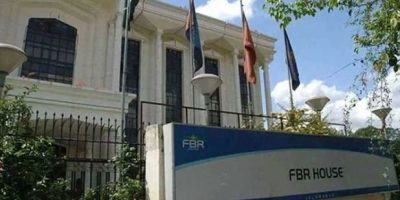India fails as FATF satisfied over Pakistan in curbing money laundering

SYDNEY (DNA) – All Financial Action Task Force’s (FATF) Asia Pacific Group (APG) members – countries, jurisdictions or territories within the Asia-Pacific region committed to implementing and enforcing the global anti-money laundering and countering financing terrorism (AML/CFT) safeguards established by the FATF – have expressed their satisfaction over Pakistan’s measures and strict implementation of laws for curbing money laundering.
After adopting Pakistan’s third Mutual Evaluation Report (MER), the APG is expected to make public its assessment shortly.
Sources familiar with the matter told the media on Thursday that Indian lobby’s conspiracy in the FATF’s APG for downgrading Pakistan to the blacklist has been failed as APG member countries were satisfied following examination of the analytical report.
Yesterday, the Pakistani delegation, headed by Governor of the State Bank of Pakistan Reza Baqir, briefed the FATF’s APG that the country has formulated and implemented strict laws to curb money laundering in compliance with its 16 recommendations.
The Pakistani delegation also held sideline meetings to comprehensively explain members of the Asia Pacific Group (APG) – the regional affiliate of the international money-laundering watchdog FATF – about implementation of its action plan in the country.
It was told about Pakistan’s legislation, including imposition of heavy fines and sentences for convicts in combating money laundering.
The members were told that all travellers within Pakistan have been forbidden from carrying more than $10,000 under the new rules except with the permission from the State Bank of Pakistan (SBP).
The FATF’s APG has also been told that the state has restricted international travellers from carrying $10,000 or above i.e. they would be required to use proper banking channel(s) for the transfer of the amount.
Importantly, the delegation brought the APG up to date that SBP had directed all commercial banks in Pakistan to discontinue Rs40,000 national prize bonds.
The government had decided to freeze sales of these instruments after it was alleged that huge amounts of black money was used to buy these bonds as they also offer prize money worth millions.
Analysts have termed implementation on FATF’s recommendations ‘necessary’ if Pakistan were to get the next installment of the International Monetary Fund (IMF).
Conducted in Canberra, Australia, the Asia-Pacific Group evaluated Pakistan’s possible exit from the grey list of the FATF by the mid of October.
Besides, the body has also examined Pakistan’s progress on upgrading its systems in all areas of financial and insurance services and sectors.
The delegation had presented its 26-page report before the intergovernmental organisation regarding the measures which have been taken to prevent money laundering, terror financing and other recommendations. The report was collectively prepared by five institutions.
The delegation comprised representatives of the National Counter Terrorism Authority (NACTA), the Federal Board of Revenue (FBR), the Securities and Exchange Commission of Pakistan (SECP), the Federal Investigation Agency (FIA) and the Financial Monitoring Unit (FMU).
The meeting will be followed by another round of mutual evaluations by the APG starting September 5 in Bangkok (Thailand) that would become a key basis of Pakistan’s final review by the FATF at its plenary and working group meetings scheduled for Oct 13-18 in Paris.
Earlier in July, the National Assembly’s Standing Committee on Finance and Revenue on Tuesday unanimously passed two revised bills, including the Foreign Exchange Regulation (Amendment) Bill, 2019, and the Anti Money Laundering (Amendment) Bill, 2019, and recommended that the bills might be passed by the Assembly – seeking amendments in order to meet requirements of the Financial Action Task Force (FATF).
The bills were aimed at strengthening the existing laws on money laundering and foreign exchange control to make them more stringent to fight money laundering, hundi and hawala and effectively regulate foreign exchange transactions to meet standards of the FATF.
APG members are countries, jurisdictions or territories within the Asia-Pacific region committed to implementing and enforcing the global AML/CFT standards established by the FATF. The APG consists of 41 member jurisdictions and a number of observer jurisdictions and international/regional observer organisations.
Related News

5.6-magnitude earthquake jolts Islamabad, Pindi, parts of KP
ISLAMABAD, FEB 20: A 5.6-magnitude earthquake struck parts of Khyber Pakhtunkhwa (KP) and Punjab onRead More

FBR orders installation of POS system in over 14 sectors
ISLAMABAD, FEB 20: The Federal Board of Revenue (FBR) has decided to introduce online monitoringRead More


Comments are Closed